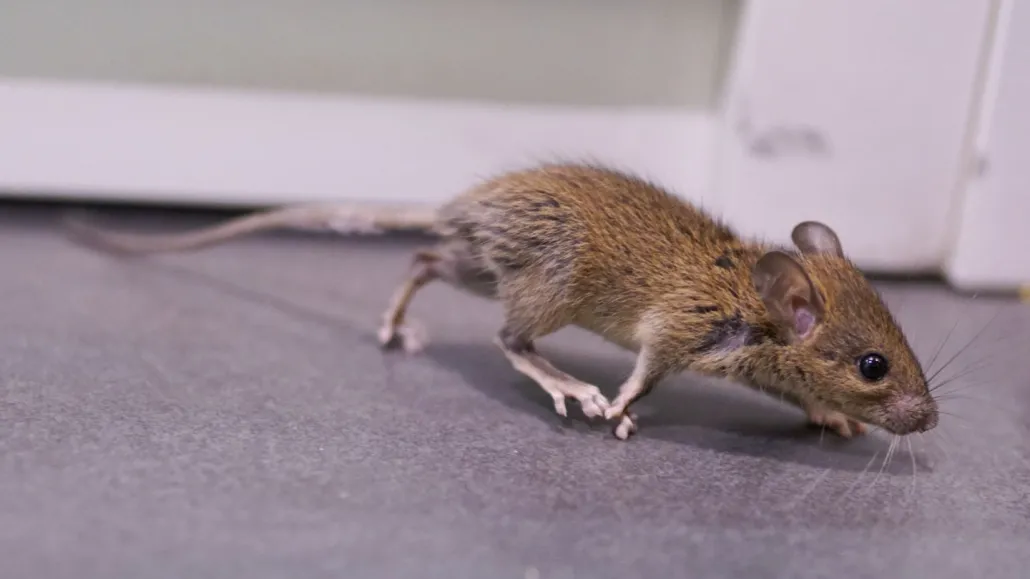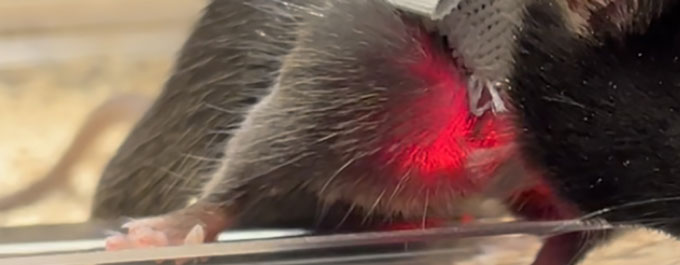In mice, anxiety isn’t all in the head. It can start in the heart
In high-risk contexts, a racing heart can make a formerly relaxed mouse nervous

In scary situations — such as being faced with a big human shoe — a mouse might behave fearfully and its heart might race. Now, scientists have used light over a mouse’s heart to make the animal behave fearfully, no big shoe required.
Yaorusheng/Moment/Getty Images Plus
- More than 2 years ago
When you’re stressed and anxious, you might feel your heart race. Is your heart racing because you’re afraid? Or does your speeding heart itself contribute to your anxiety? Both could be true, a new study in mice suggests.
By artificially increasing the heart rates of mice, scientists were able to increase anxiety-like behaviors — ones that the team then calmed by turning off a particular part of the brain. The study, published in the March 9 Nature, shows that in high-risk contexts, a racing heart could go to your head and increase anxiety. The findings could offer a new angle for studying and, potentially, treating anxiety disorders.
The idea that body sensations might contribute to emotions in the brain goes back at least to one of the founders of psychology, William James, says Karl Deisseroth, a neuroscientist at Stanford University. In James’ 1890 book The Principles of Psychology, he put forward the idea that emotion follows what the body experiences. “We feel sorry because we cry, angry because we strike, afraid because we tremble,” James wrote.
The brain certainly can sense internal body signals, a phenomenon called interoception. But whether those sensations — like a racing heart — can contribute to emotion is difficult to prove, says Anna Beyeler, a neuroscientist at the French National Institute of Health and Medical Research in Bordeaux. She studies brain circuitry related to emotion and wrote a commentary on the new study but was not involved in the research. “I’m sure a lot of people have thought of doing these experiments, but no one really had the tools,” she says.
Deisseroth has spent his career developing those tools. He is one of the scientists who developed optogenetics — a technique that uses viruses to modify the genes of specific cells to respond to bursts of light (SN: 6/18/21; SN: 1/15/10). Scientists can use the flip of a light switch to activate or suppress the activity of those cells.

In the new study, Deisseroth and his colleagues used a light attached to a tiny vest over a mouse’s genetically engineered heart to change the animal’s heart rate. When the light was off, a mouse’s heart pumped at about 600 beats per minute. But when the team turned on a light that flashed at 900 beats per minutes, the mouse’s heartbeat followed suit. “It’s a nice reasonable acceleration, [one a mouse] would encounter in a time of stress or fear,” Deisseroth explains.
When the mice felt their hearts racing, they showed anxiety-like behavior. In risky scenarios — like open areas where a little mouse might be someone’s lunch — the rodents slunk along the walls and lurked in darker corners. When pressing a lever for water that could sometimes be coupled with a mild shock, mice with normal heart rates still pressed without hesitation. But mice with racing hearts decided they’d rather go thirsty.
“Everybody was expecting that, but it’s the first time that it has been clearly demonstrated,” Beyeler says.
The researchers also scanned the animals’ brains to find areas that might be processing the increased heart rate. One of the biggest signals, Deisseroth says, came from the posterior insula (SN: 4/25/16). “The insula was interesting because it’s highly connected with interoceptive circuitry,” he explains. “When we saw that signal, [our] interest was definitely piqued.”
Using more optogenetics, the team reduced activity in the posterior insula, which decreased the mice’s anxiety-like behaviors. The animals’ hearts still raced, but they behaved more normally, spending some time in open areas of mazes and pressing levers for water without fear.
A lot of people are very excited about the work, says Wen Chen, the branch chief of basic and mechanistic research for complementary and integrative health at the National Center for Complementary and Integrative Health in Bethesda, Md. “No matter what kind of meetings I go into, in the last two days, everybody brought up this paper,” says Chen, who wasn’t involved in the research.
The next step, Deisseroth says, is to look at other parts of the body that might affect anxiety. “We can feel it in our gut sometimes, or we can feel it in our neck or shoulders,” he says. Using optogenetics to tense a mouse’s muscles, or give them tummy butterflies, might reveal other pathways that produce fearful or anxiety-like behaviors.
Understanding the link between heart and head could eventually factor into how doctors treat panic and anxiety, Beyeler says. But the path between the lab and the clinic, she notes, is much more convoluted than that of the heart to the head.







